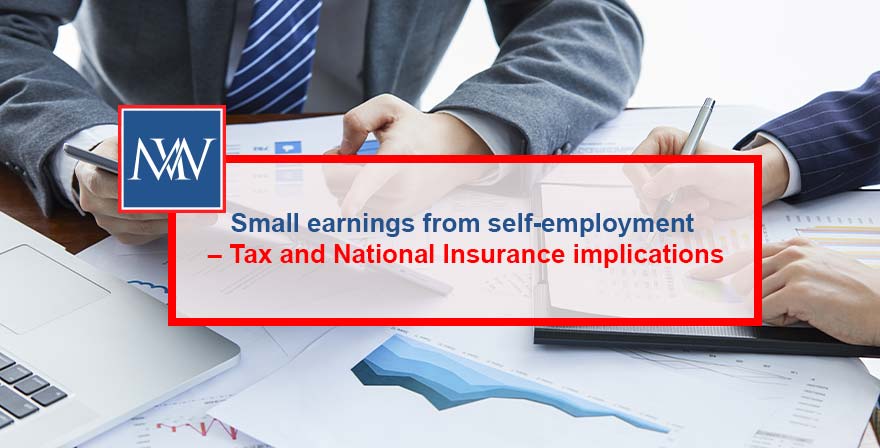
Small earnings from self-employment – Tax and National Insurance implications
Many people earn small amounts of money from self-employment, often as a side hustle. For example, this may be from craft or baking activities, tuition or the provision of services, such as babysitting. If you earn money in this way, it is important to understand the associated tax and National Insurance implications.
Tax consequences
A separate trading allowance of £1,000 allows you to earn up to £1,000 of self-employed profits tax-free. If your profits from all self-employments in a tax year are £1,000 or less, you do not need to report the income to HMRC and there is no tax to pay. However, it is important to remember that you need to take account of your total profits from all self-employments – the trading allowance applies across all self-employments rather than on a business-by-business basis.
If your profits from self-employment are more than £1,000, you will need to complete a tax return. If you are not registered for Self Assessment, you will need to register by 5 October after the end of the tax year for which you first need to report your income. You can do this online (see www.gov.uk/register-for-self-assessment). You will need to complete your tax return and file it online by 31 January after the end of the tax year, so by 31 January 2026 for your 2024/25 tax return. You must also pay any tax and National Insurance that you owe by this date too.
You can still benefit from the trading allowance if your profits from self-employment are more than £1,000 by deducting the £1,000 trading allowance rather than your actual expenses where it is beneficial to do so. This will be the case if your actual expenses are less than £1,000.
If you make a loss, even though there is no tax to pay, you may want to complete a return so that the loss is available to use against any future profits.
National Insurance
For 2024/25, the self-employed only pay Class 4 contributions where their profits exceed the lower profits limit, set at £12,570. The liability to Class 2 contributions has been abolished for 2024/25 and later tax years. If your profits from self-employment are less than £12,570, there will be no National Insurance for you to pay.
However, if your profits are between the small profits threshold, set at £6,725 for 2024/25, and the Class 4 lower profits limit of £12,570, you will receive a National Insurance credit which will provide you with a qualifying year for state pension and contributory benefit purposes for zero cost.
If your profits from self-employment are below the small profits level of £6,725, you will not be able to benefit from the National Insurance credit. However, you will have the option of paying voluntary contributions at the Class 2 rate of £3.45 per week. If you do not already have the 35 qualifying years needed for the full state pension and will not otherwise secure this by the time that you reach state pension age, this can be a cheap option — paying voluntary Class 2 contributions of £3.45 per week is much cheaper than paying voluntary Class 3 contributions of £17.45 per week.
For more information, Book a Free Consultation
Need Accountancy Support?
For information on bespoke training, or if you have any other questions for Makesworth Accountant, please fill in your details below




















 150
150